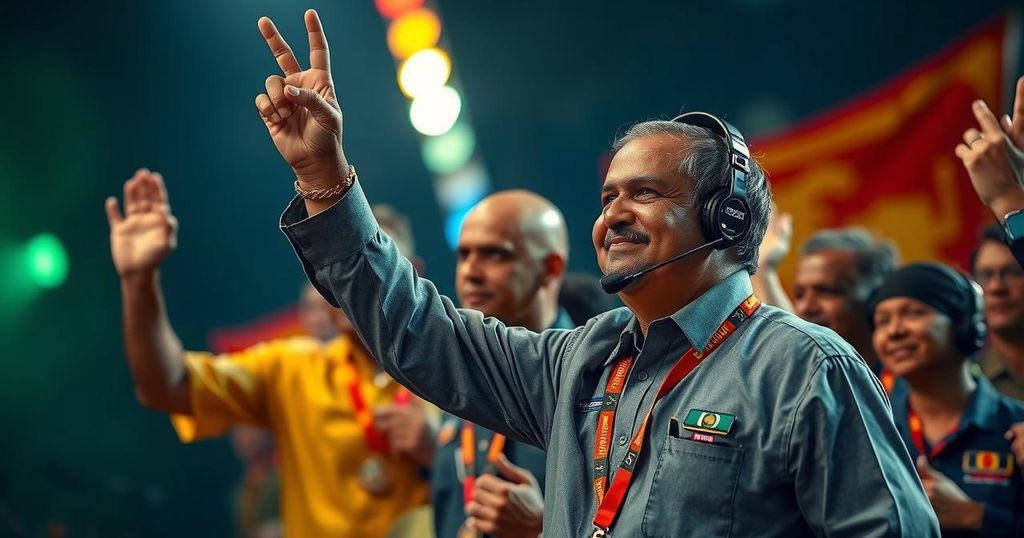Sri Lanka’s New Presidency: An Outsider’s Path to Recovery

Sri Lanka has elected a new president from an outsider party with Marxist roots amidst a recovery from two years of economic crisis. The previous administration’s fall followed widespread protests due to inflation, a depreciated currency, and fuel shortages. The new leadership has since stabilized the economy by taming inflation, securing an IMF bailout, and restructuring debt with creditors.
Sri Lanka has experienced a significant political upheaval marked by the rise of a new president from an outsider party with Marxist principles. Following a turbulent two years characterized by the fallout from the COVID-19 pandemic, extensive borrowing, and policy missteps, the nation found itself in a precarious economic situation, defaulting on its debts. This turmoil led to rampant inflation, a devalued rupee, and severe fuel shortages, ultimately resulting in widespread protests that forced the pro-China president, Gotabaya Rajapaksa, to flee in exile to the Maldives. In the aftermath, the new leadership has managed to stabilize the economy by controlling inflation, obtaining crucial support from the International Monetary Fund (IMF), and negotiating a debt restructuring plan with creditors. Despite the improvements, it remains essential for the government to address the underlying economic challenges and implement further reforms to ensure long-term stability and growth.
The political landscape in Sri Lanka has been transformed in recent years due to a series of crises exacerbated by external and internal factors. The COVID-19 pandemic severely impacted the nation’s economy, which was already vulnerable due to high levels of debt and poor policy decisions. The departure of former president Gotabaya Rajapaksa symbolized a broader discontent with the established political order, paving the way for a new administration that proposes economic reforms influenced by Marxist ideology. The recent stabilization measures highlight the ongoing efforts to revitalize the economy and restore public confidence following a period of considerable distress.
In summary, the recent ascendance of an outsider in Sri Lanka’s political arena underscores a pivotal shift following a period of severe economic and social instability. The newly appointed president’s background in a party with Marxist roots signifies a potential departure from previous leadership styles. The successful implementation of economic stabilization strategies, including IMF support and debt restructuring agreements, will be crucial in addressing Sri Lanka’s ongoing economic challenges and fostering sustainable growth.
Original Source: www.economist.com







